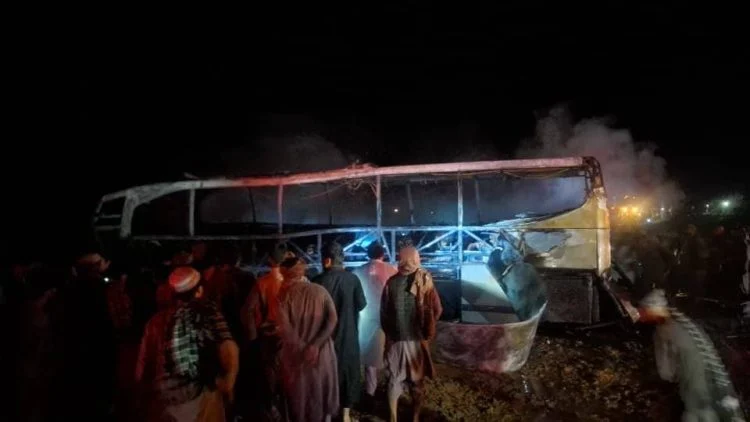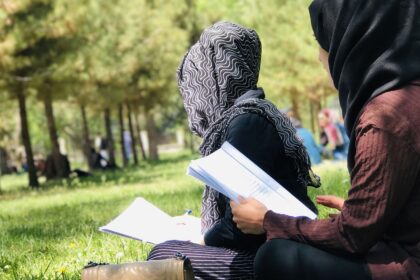RASC News Agency: The death toll from the catastrophic collision on the Herat–Kabul highway has climbed to at least 71, in what is being described as one of the deadliest road tragedies in Afghanistan in recent years. Eyewitnesses and local health officials confirmed that dozens of passengers perished instantly, while many others sustained life-threatening injuries, overwhelming medical facilities already starved of resources. The accident occurred late Tuesday night when a heavily overloaded passenger bus collided head-on with a fuel tanker, igniting a massive blaze that engulfed both vehicles. Survivors described a scene of horror, with flames trapping passengers inside, leaving little chance of escape. Local residents rushed to assist before emergency teams arrived, but their efforts were hampered by the absence of functional rescue infrastructure.
While the Taliban authorities issued statements attributing the accident to “reckless driving,” critics argue that the tragedy is symptomatic of a much deeper crisis under Taliban rule. Afghanistan’s highways, once lifelines of commerce and mobility, have deteriorated into death traps. Basic safety standards including routine vehicle inspections, functional traffic monitoring, and adequate emergency services have all but collapsed since the Taliban takeover. For residents, the disaster embodies the Taliban’s chronic neglect of governance. “Our roads are broken, our vehicles unsafe, and there is no system in place to protect us,” said Ahmad Shah, a Kabul resident (name changed for security reasons). “The Taliban only know how to suppress people; they do nothing to safeguard their lives.”
Transportation experts note that the highway connecting Herat to Kabul is among the busiest in the country, yet remains one of the most neglected. Years of disrepair, coupled with Taliban’s lack of investment in infrastructure, have left drivers navigating crumbling roads with virtually no traffic enforcement. According to former government engineers, even modest repairs or stricter safety regulations could have prevented countless accidents in recent years. Hospitals in Herat and neighboring provinces were quickly overwhelmed with the injured, many of whom suffered severe burns. Doctors privately admitted that shortages of medicine and equipment worsened by the Taliban’s isolation from international aid significantly reduced survival chances for critically wounded passengers.
Human rights observers emphasize that the tragedy cannot be dismissed as a mere accident. Instead, it reflects the Taliban’s broader failure to administer a functioning state. Despite their rhetoric of “security and stability,” the regime’s priorities remain focused on policing social behavior and silencing dissent, rather than addressing the urgent needs of public safety and infrastructure. As Afghanistan mourns the victims, the Herat–Kabul highway tragedy stands as yet another grim reminder: under Taliban misrule, ordinary citizens continue to pay the highest price not only from violence and repression, but also from preventable disasters born of neglect and indifference.






